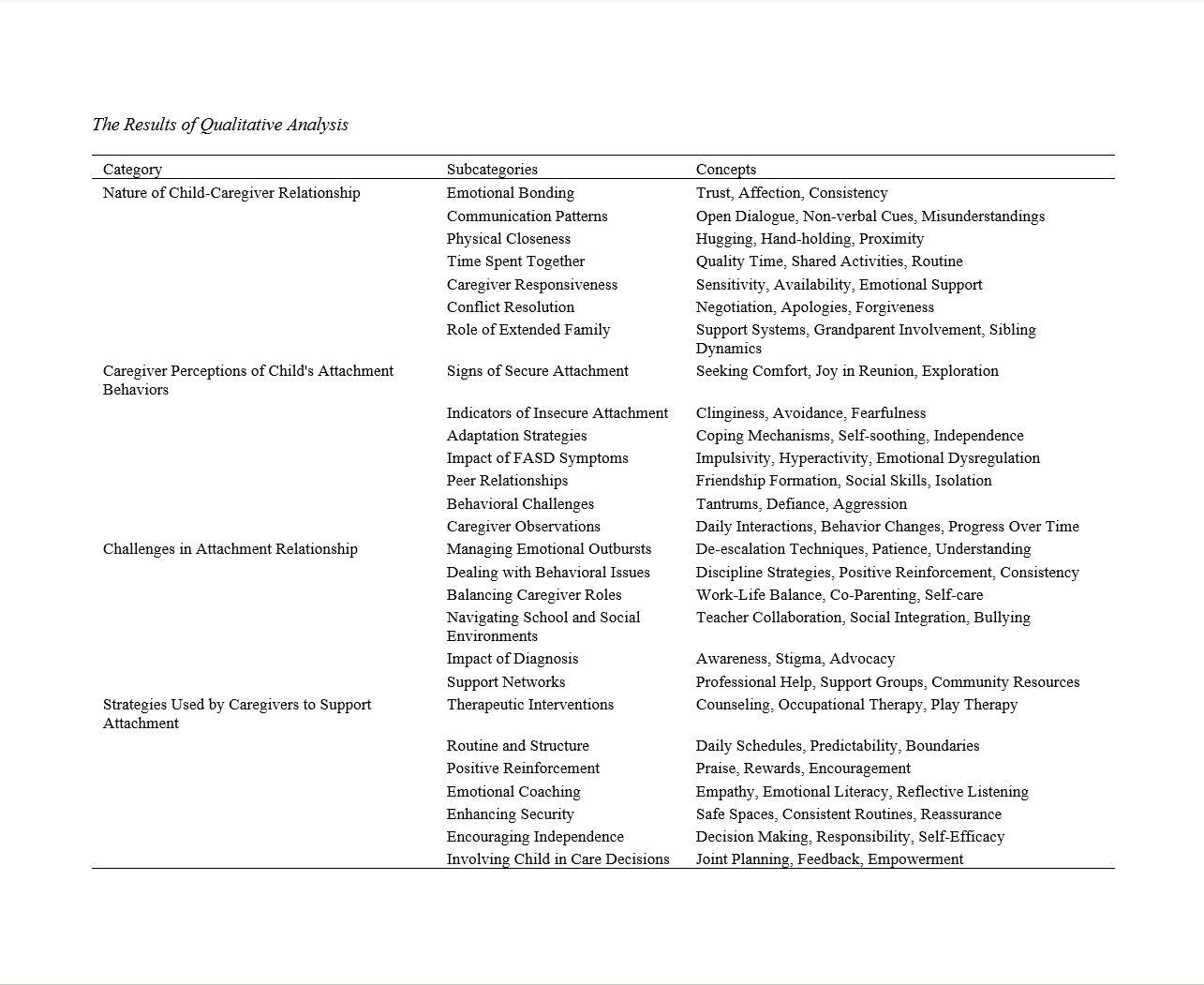Attachment Patterns in Children with Fetal Alcohol Spectrum Disorders
DOI:
https://doi.org/10.61838/kman.prien.2.3.2Keywords:
Fetal Alcohol, Spectrum Disorders (FASD), attachment patterns, caregiving, child-caregiver relationship, therapeutic interventions, neurodevelopmental impairmentsAbstract
This study aimed to explore the attachment patterns in children diagnosed with Fetal Alcohol Spectrum Disorders (FASD) by examining the experiences and perceptions of their primary caregivers. A qualitative research design was employed, utilizing semi-structured interviews with 14 primary caregivers of children diagnosed with FASD. Participants were recruited from specialized clinics and support groups. Data were collected through in-depth interviews, focusing on topics such as the nature of the child-caregiver relationship, caregiver perceptions of the child's attachment behaviors, challenges in the attachment relationship, and strategies used to support attachment. The interviews were transcribed and analyzed thematically, with theoretical saturation achieved when no new themes emerged. Four main themes emerged from the analysis: the nature of the child-caregiver relationship, caregiver perceptions of the child's attachment behaviors, challenges in the attachment relationship, and strategies used by caregivers to support attachment. Caregivers emphasized the importance of emotional bonding, effective communication, physical closeness, and consistent caregiving in fostering secure attachment. They reported a range of attachment behaviors, including both secure and insecure patterns, influenced by the neurodevelopmental impairments associated with FASD. Key challenges included managing emotional outbursts, behavioral issues, and balancing caregiving roles. Caregivers employed various strategies such as therapeutic interventions, establishing routines, positive reinforcement, and emotional coaching to support attachment. The study provides a comprehensive understanding of the attachment patterns in children with FASD, highlighting the critical role of responsive caregiving and the adaptive strategies used by caregivers. The findings underscore the need for targeted interventions and comprehensive support systems to enhance attachment and promote the developmental well-being of children with FASD. Further research is needed to explore the long-term impact of these attachment patterns and the effectiveness of specific interventions.
Downloads

Downloads
Additional Files
Published
Issue
Section
License

This work is licensed under a Creative Commons Attribution-NonCommercial 4.0 International License.





